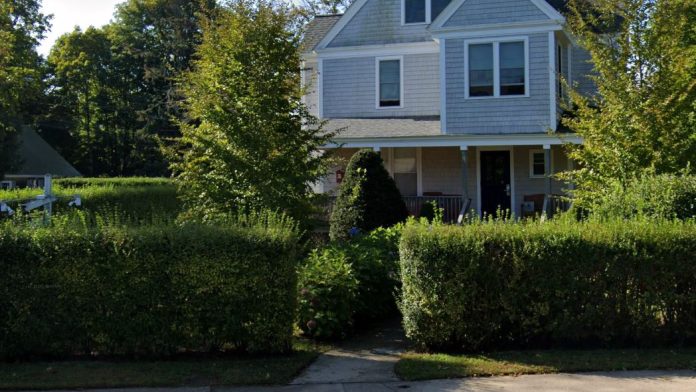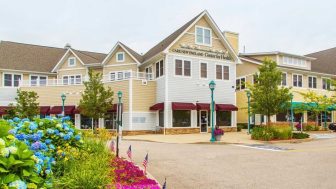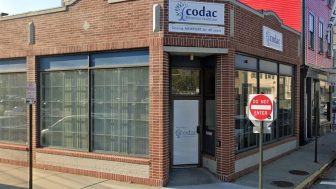Galilee Mission
268 Kingstown Rd
Narragansett, RI 02882

About Galilee Mission
The Galilee Mission is a nonprofit organization located in Narragansett, Rhode Island. They specialize in treating adults who are struggling with substance abuse disorders. They’ve served the Washington County region since 1984. The levels of care available here include residential, outpatient (OP) and supportive living. Other services provided here include clinical assessments, individual counseling, 12-step groups, peer recovery support and case management services.
During your initial clinical assessment, your therapist will ask a variety of questions to identify areas you can improve on during treatment and learn about any conditions that may impact your recovery. Then, they’ll develop a personalized treatment plan to help you achieve your goals and get the healing you need.
If you’re in outpatient treatment, you’ll have time during the day to enjoy all that Narragansett has to offer. From stunning beaches like Narragansett Town Beach to world-class fishing and historic landmarks, there’s no shortage of things to do. Residential clients can enjoy a safe, supportive atmosphere with a cozy setting and access to evidence-based therapies. At this location, they offer the Galilee House -- a 16-bed residence that incorporates work therapy, counseling and life skills training into your treatment program.
Individual counseling will involve working one-on-one with a therapist. It will give you a safe space to discuss challenging topics, emotions, behaviors and thoughts. You’ll have the opportunity to be vulnerable without the fear of being misunderstood or judged. Anger management and educational workshops are also available.
The 12-step model of treatment will be included throughout your time of treatment. Exposure to 12-step programs will be incorporated throughout the week. This can help you maintain your sobriety and motivate you to stay active in your recovery even after you complete treatment.
The team here will equip you with tools for coping, combating triggers, caring for yourself, developing a healthier lifestyle and preventing a relapse. This can encourage you to develop a support network and stay connected with others who, like you, are continuing their journey in recovery.
Amenities
Residential drug rehab provides the comforts of home with the therapeutic support needed to successfully recover. Benefits of an inpatient program include increased safety, a higher success rate, and the time and distance given to focus on recovery. Residential drug rehabs are often the preferred method of treatment, as they can be tailored to meet specific needs, offer focused therapeutic care, and provide the necessary tools to sustain recovery.
Addiction Treatment Programs
Many disorders and addictions can be treated at a young adult program in Rhode Island. Programs combine family, group, and individual therapies in an age-appropriate environment to treat alcohol and drug use disorders as well as co-occurring disorders such as anxiety and depression.
Each available adult program in Rhode Island offers a full continuum of care to those aged 18 and up.. Inpatient, outpatient, and sober living programs offer varying levels of intensity to meet the needs of every individual.
Alcohol rehab in Rhode Island is more than simple alcohol abstinence. These treatment programs teach you how to change your lifestyle and environment so you can maintain sobriety and enjoy long-term recovery.
Men often feel safer in men’s rehab in Rhode Island and more comfortable without the presence of women. This allows them to deal with sensitive topics such as traumatic events and deep-rooted emotions.
Providing a firm foundation for women to build sober lives, women’s rehab in Rhode Island increases recovery success. Treatment addresses specific challenges women face in day-to-day life, to teach them new ways to cope without turning to substances.
During drug rehab in Rhode Island, you’ll participate in a variety of therapeutic interventions designed to help you break free from addiction. Common methods include cognitive behavioral therapy, music and art therapy, 12-step support, and nutrition/exercise.
In Rhode Island, LGBTQ-friendly rehab offers many of the same treatment methods found traditional programs. However, staff are trained to provide relevant treatment to LGBTQ individuals, based on their unique needs.
Levels of Care
Outpatient rehab in Rhode Island involves less frequent sessions than inpatient programs. You’ll attend therapy and 12-step meetings, while maintaining other life responsibilities. This will help you remain accountable while learning to live a sober lifestyle.
Substance abuse and mental illness often overlap. If you struggle with addiction and a condition such as anxiety or depression, you need dual diagnosis treatment in Rhode Island. This will provide treatment for both disorders.
For those who need intensive treatment, inpatient drug rehab in Rhode Island allows you to reside at the treatment center for the length of the program, which may range from a few weeks to more than three months. You'll attend multiple addiction counseling sessions per week, including individual, group, and family counseling.
Sober living in Rhode Island provides accountability and stability for those who need extra support during the early days of their recovery journey. This environment is often beneficial for those who don’t have a strong support system, have been through rehab treatment recently, or have been resistant to treatment in the past.
Intervention services in Rhode Island are an effective way to start the recovery journey. These services include valuable education and resources for family members. Experts can help with intervention facilitation and the development of the best treatment plan to suit your loved one’s needs.



